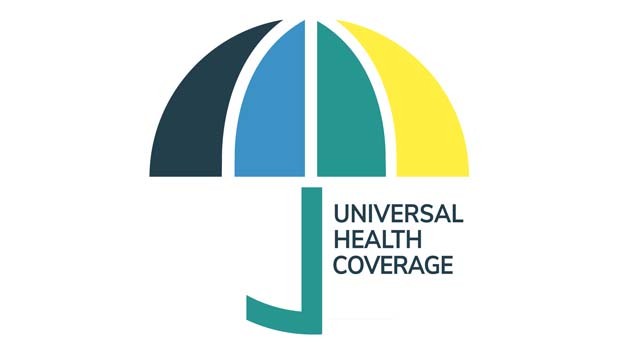● Issues relating to development and management of Social Sector/Services relating to Health, Education, Human Resources.
Q2. What are the challenges hindering India’s progress towards achieving Universal Health Coverage (UHC), and how can these obstacles be effectively addressed through strategic measures and policy interventions?
Universal health coverage (UHC) signifies universal accessibility to comprehensive, high-quality health services, without financial hardship.
UHC in National Health Policy-2017:
It aims at achieving universal health coverage and delivering quality health care services to all at affordable cost.
● UHC ensures availability of free, comprehensive primary health care services, for all aspects of reproductive, maternal, child and adolescent health and for the most prevalent communicable, non-communicable and occupational diseases in the population.
● The Policy also envisages optimum use of existing manpower and infrastructure as available in the health sector and advocates collaboration with non -government sector on pro-bono basis for delivery of health care services linked to a health card to enable every family to have access to a doctor of their choice from amongst those volunteering their services.
● Ensuring improved access and affordability, of quality secondary and tertiary care services through a combination of public hospitals and well measured strategic purchasing of services in health care deficit areas, from private care providers, especially the not-for profit providers
● Achieving a significant reduction in out of pocket expenditure due to health care costs and achieving reduction in proportion of households experiencing catastrophic health expenditures and consequent impoverishment.
NHP targets to achieve UHC:
Health finance:
● Increase health expenditure by Government as a percentage of GDP from the existing 1.15% to 2.5 % by 2025.
● Increase State sector health spending to > 8% of their budget by 2020.
● Decrease in proportion of households facing catastrophic health expenditure from the current levels by 25%, by 2025.
Health Infrastructure and Human Resource:
● Ensure availability of paramedics and doctors as per Indian Public Health Standard (IPHS) norm in high priority districts by 2020.
● Increase community health volunteers to population ratio as per IPHS norm, in high priority districts by 2025.
● Establish primary and secondary care facilities as per norms in high priority districts (population as well as time to reach norms) by 2025.
Suggestions:
● The first is to address urban migrants’ health needs, and reforms in informal sectors. Given the surge in migration and mobility, primary healthcare needs a shift in vision. There is a need to include the element of mobility and portability of access to health care services to aid continuity of treatment.
● The second is to simplify the reimbursement processes for reducing out-of-pocket expenditure. The design of cash transfers and reimbursement in India’s public healthcare system needs adaptation for migrant and marginalised communities.
● The third is to create inclusive health systems. We need to integrate health management information system dashboards with both public and private systems and ensure better information systems considering language barriers and diversity in the urban context.
● The fourth is to implement community-based primary healthcare in urban and peri-urban areas with seamless referral systems. We need to foster integration of services at the primary healthcare level, ensuring follow-up and adherence to healthcare.
● A healthy population is an empowered population. The lighter the disease burden, the better the country’s financial health. This election, UHC can be a transformative offering of political parties. Committing to investing in health systems and effectively implementing UHC necessitates political will, substantial investment, and a clear, long-term vision. Establishing a coherent policy pathway to execute the national UHC policy consistently across States is imperative for its success.
By addressing these challenges and implementing strategic measures and policy interventions, India can make significant progress towards achieving Universal Health Coverage and ensuring equitable access to quality healthcare for all its citizens.
Source The Hindu
https://epaper.thehindu.com/ccidist-ws/th/th_chennai/issues/78345/OPS/G5FCL2VSH.1+GMRCL32KT.1.html

